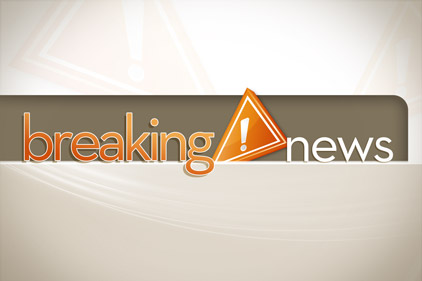“Standing water in a yard, house, or basement can damage a home’s heating, cooling, and water heating equipment in ways that are not always readily apparent and putting families at risk,” said Stephen Yurek, AHRI president and CEO. “We advise homeowners to play it safe and replace, rather than repair, flood-damaged heating, cooling, and water heating equipment.”
The association has compiled a list of heating and cooling equipment for homeowners to consider replacing if flood-damaged:
• Gas and Oil Furnaces and Boilers: If there is any question whether flood water has reached a gas or oil furnace or boiler, it should be checked by a qualified contractor. This equipment has valves and controls that are especially vulnerable to water damage from floods — damage that might not be visible. Corrosion begins inside the valves and controls, and damage may not be apparent, even if the outside of the device is clean and dry. At a minimum, this damage can result in reliability problems.
• Electric Furnaces: An electric furnace consists of electrically heated coils, a fan to provide air circulation across the coils, and controls that include safety relays. As with a gas furnace, an electric furnace is susceptible to corrosion and damage from flood water, creating potential reliability problems or safety hazards. If there is any question whether flood water has reached an electric furnace, homeowners should have it checked by a contractor.
• Propane Heating: Use extreme caution where there is the potential for propane leaks and have propane equipment checked, repaired, and/or replaced by a contractor as quickly as possible after a flood. In every case, contractors must replace all valves and controls that have been in contact with flood water. The gas pressure regulator on a propane system should also be checked. This regulator contains a small vent hole to sense outside pressure. For effective gas pressure regulation, this hole must always remain unobstructed. During a flood, debris can easily plug the hole, causing dangerous malfunction or corrosion.
• Radiant Floor Heat: With this type of heating system, electrically-heated cables or tubing circulating a fluid are embedded underneath or within the flooring material. The cables warm the floor, which in turn warms the room by radiant heat. If the floor becomes wet from a flood, it can weaken and perhaps crack and may need replacement. Both electrical cables and tubing can be damaged due to a wet floor. Therefore, a qualified professional should be consulted to determine whether the system can continue to be used.
• Heat Pumps and Air Conditioning Systems: Split air conditioning and heat pump systems have power and control wiring between the indoor and outdoor parts of the system, and piping through which refrigerant flows through the system. If flood water has repositioned either the indoor or outdoor units of a split system even by a small amount, there is a potential for refrigerant leaks. The system will then require major repair or full replacement.
If the refrigerant system remains intact after the flood, the entire system should be cleaned, dried, and disinfected. Homeowners should have a contractor check the indoor and outdoor units’ electrical and refrigeration connections, including all control circuits. The decision to repair or replace should be made after consultation with a qualified professional on a case-by-case basis.
• Ductwork: If a house under storm repair contains a central forced-air system, attention should also be paid to the ductwork. A contractor will not try to salvage duct insulation that has been in contact with flood water, but will replace it because it is impossible to decontaminate. The contractor also will clean, dry, and disinfect the ductwork itself. A thorough job will require disassembling the ductwork, but the silver lining is that such repairs will allow the contractor to seal joints in the ductwork and improve insulation to reduce heat and cooling loss.
• Water Heating Systems: Whether a water heater uses gas, oil, or electricity, if it was exposed to flood water, the unit should be replaced. A new water heater is a relatively small investment, and replacing it is fairly easy to do. If the water heater was more than five years old, the chances are good that a new unit will be more efficient, which will save the homeowner money in the long run.
In gas and oil units, valves and controls can corrode. In an electric unit, the thermostat and controls can corrode. In all types, the insulation surrounding the unit will likely be contaminated and will be nearly impossible to disinfect. In addition, the insulation takes a great deal of time to dry and can lead to corrosion of the tank from the outside.
Even if water heater components have been cleaned and the unit seems to operate properly, parts may corrode in the future. Both gas and electric water heaters have a pressure relief valve that can corrode and stick after being exposed to flood water. Homeowners should be sure, therefore, to replace this valve as well.
AHRI recommends that all inspection and replacement work on flooded equipment be performed by qualified heating and cooling technicians, not by homeowners. Qualified contractors are listed by zip code in the North American Technician Excellence (NATE) Contractor Locator at www.natex.org. Federal tax incentives for replacements and upgrades are available. For more information, visit www.ahrinet.org/Content/FederalTaxCredits_896.aspx.
“While flood damage can be a very traumatic experience,” Yurek said, “homeowners can turn misfortune into opportunity by considering new, energy-efficient models that will lower their future energy bills. They also should ask their local utility about available rebates for installing new, energy-efficient heating and cooling equipment, and a competent contractor will be able to advise homeowners about equipment eligible for federal tax credits or state energy rebates.”
Publication date: 10/29/2012









